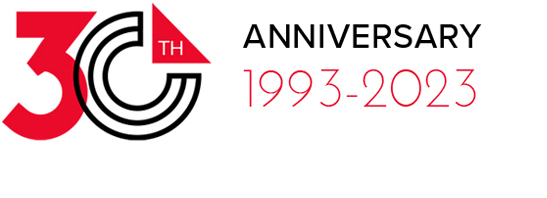Many moons ago, I worked for a high-tech startup in Portland. You know the one. Free food. Massage appointments in the office every Thursday. Stock options. Beer and wine at brainstorming sessions. It was exciting. It was enticing. Best of all, I was going to be fabulously rich.
A year and a half into the gig, after chasing a large media conglomerate for months, I landed an appointment for our CTO and CEO to present the software. We needed the order. The startup was running on fumes and getting additional investor funding depended on a firm contract. Well, a week later, the startup cratered after burning through about $28 million (or so I was told).
From time to time, I wonder what would have happened if I had secured that appointment four weeks earlier. The software was a good fit, but we simply ran out of money. Knowing that… could I have done anything differently that would have changed the outcome?
 Sales are funny that way. We are so conditioned by “sales success” that we tend to ignore “sales failure.” So we congratulate ourselves on what we did right to land the order — Not on what we did wrong that prevented us from getting it. We create excuses. We blame the situation or a person.
Sales are funny that way. We are so conditioned by “sales success” that we tend to ignore “sales failure.” So we congratulate ourselves on what we did right to land the order — Not on what we did wrong that prevented us from getting it. We create excuses. We blame the situation or a person.
As an exhibit account executive who lost a sale, you may not have been able to change the decision. The client may have wanted to work with a vendor 20 miles away rather than 200 miles away. Or, you didn’t have exhibit storage services and your competitor did. As with most decisions or outcomes, it’s nearly always the little things, both said and unsaid, that matter.
Ask Yourself
#1. Homework. Have you done your homework? Have you studied their website? Have you read any recent business articles about the company regarding trends and new products? No one expects you to be an expert, but the moment a potential supplier says to me in my conference room, “What do you do?” I’ve already checked them off my list.
#2. Attention. Does your customer have your full attention with every email, every call, every meeting? In reality, you’re on a business date, hoping to get married and have a couple of kids. [OK, this may be a quickie instead.] Either way, you’ll be successful if you are fully present and not checking out the tall redhead with the plunging neckline that smells like sea breeze and cinnamon. Hmmm… what were we talking about?
#3. Questions. Are you asking the right questions? Seems obvious but asking the right questions means two things: 1. Shutting up and not talking about yourself, and 2. Doing your homework before the meeting and asking the right questions.
 #4. Notes. Want to be a sales superstar at your next meeting? Take notes. Then use those notes to ask questions and clarify any points? Even if you think you understand, ask anyway so they know you understand their business and their objectives. You may be impressed by a server who takes your order without writing anything down. In a business meeting, winners tap and scribble. You can quote me on that.
#4. Notes. Want to be a sales superstar at your next meeting? Take notes. Then use those notes to ask questions and clarify any points? Even if you think you understand, ask anyway so they know you understand their business and their objectives. You may be impressed by a server who takes your order without writing anything down. In a business meeting, winners tap and scribble. You can quote me on that.
#5. Tactful, Persistent, Professional. You can divide poor salespeople into two camps. Those who drive 50 miles an hour in the left-hand lane when the speed limit is 65 or those who take every corner way too fast. I’m always impressed by the salesperson who can read a person and know exactly how and how often to contact a client. They don’t rely on a formula. They ask, they learn, they persevere, and they are unfailingly polite. They are quite simply the tactful, persistent professional.
So ask yourself, “What could I have done better or different with the one that got away?” Was it really out of your hands or did you hand it to your competitor on a silver platter.
–Mel White
mel@classicexhibits.com
http://www.linkedin.com/in/melmwhite
https://twitter.com/melmwhite
**********************************************
Based in Portland, Oregon, Classic Exhibits Inc. designs and manufacturers portable, modular, and custom-hybrid exhibit solutions. Classic Exhibits products are represented by an extensive distributor network in North America and in select International markets. For more information, contact us at 866-652-2100 or www.classicexhibits.com.
[subscribe2]
Tags: Classic Exhibits, exhibit sales, sales





Always check the individual’s LinkedIn as well as the company’s LinkedIn (if they have one). You’ll be surprised at the information you can collect on someone through this channel before meeting with them. I’ve used information learned from their LinkedIn page that caught them off guard…in a good way. They were quite impressed with what I knew about them. In the end, it’s all about how you can impress the one you meet with as opposed to what you know about their company. It gives the impression your care about them.
Great article!
Excellent point Cindi. LinkedIn is a more powerful tool than most salespeople realize. Not just as a way of familiarizing yourself with the person you are meeting, but also the company and the decision-makers. You don’t have to flaunt that knowledge, which can be counterproductive in some cases, but having it makes the conversation and discovery process more efficient.
I can relate to this. When I was in sales and lost a sale especially to a company that I knew had an inferior product, I always felt bad that I wasn’t able to sell them on the product that I knew was a better one than what they bought.
Thank you Randall. Glad you liked it.
Marylinn — You hit a nerve with me. Is there anything more frustrating than losing a sale to an inferior product or lesser competitor? Those are the situations where you replay the meeting(s) in your head again and again and wonder how you could have changed the outcome. Perhaps, you couldn’t have, but if you are an ethical salesperson, you feel bad for yourself, but you feel even worse for the client because you know they will be ill-served by the solution or the provider. Great point Marylinn! Thank you for contributing to the conversation.
“it’s nearly always the little things, both said and unsaid, that matter.”
Boy, is that ever the truth.
Thank you for the reminder about pausing to look in the rearview mirror at lost opportunities, and examining the reasons for these failed closures.
You are right…it is our tendency to focus on the successes that make us feel good in the moment. But our personal and professional growth comes from sharpening our skills on the jagged edge of those tough losses.
Great article and a great reminder!
Thanks Stacy. Really appreciate the kudos.
Imagine if our business presentations were filmed like football games, and each week we had to review “tape” with our coaches. We’d all get better pretty quick or move on to another profession.
Thanks for the contribution Chris. Your insights are always welcome.